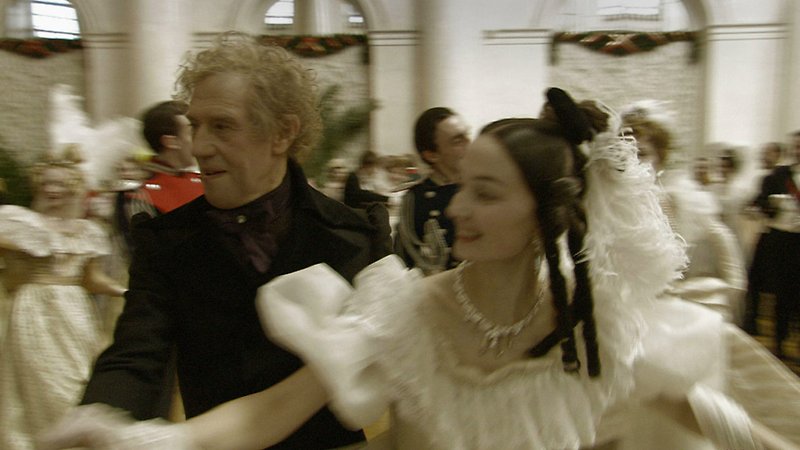
“A technical masterpiece that time-travels through Russia’s turbulent history from the 1700s to the present day in one awesome 96-minute take.” — James Christopher, The Times
Screened as part of NZIFF 2002
Russian Ark 2002
Russki kovcheg
"No one familiar with the severe, intellectual films of Alexander Sokurov [Mother and Son] can imagine the dazzling opulence that explodes in Russian Ark, a dreamlike journey through Russian and European culture over the last three centuries…. The Russian-German co-production seems destined to go down in film history as a technical tour de force. Not only is it the first feature length film to be shot in one single take using an HD digital video camera suspended on a steadicam, but it performs this feat moving through some 33 different rooms inside the Hermitage, in the midst of more than 2,000 extras in full historical costume…
The picture’s astounding production values make their own comment on the role that high culture – architecture, painting, sculpture, theater and music – has played in European history. As one character remarks, Peter the Great may have been a tyrant, but he taught Russians how to enjoy themselves. Finding pleasure in art is what Russian Ark is all about. A present-day narrator (never seen in the film) finds himself suddenly transported back to the Winter Palace (today’s Hermitage) in the early 1700s. The place is filled with courtiers and fine ladies, uniformed officers and members of court. He soon joins forces with a French marquis, a 19th-century diplomat who is also displaced in time. Unlike the narrator, however, he is perfectly visible to the people around him and feels at ease interacting with them. He is guided through the dazzling painting and sculpture collection by a blind woman, a great art connoisseur. He wanders through the emperor’s official reception for the Persian ambassador, and dances the mazurka with noble dames in the Great Nicholas Hall, to the music of a symphony orchestra (the Mariinsky Theatre Orchestra conducted by Valeri Gergiev)...
Sokurov keeps the tone light and witty, lead by the Marquis’ worldly banter and one-liners about culture. A note of sadness also creeps in along with the memory of the great wars of the 20th century and the siege that cost the city (then known as Leningrad) one million deaths. Yet Russian culture survived even this. The picture concludes with the reflection that ‘we’re destined to sail along forever, to live forever’…
East German steadicam operator Tilman Büttner (Run, Lola, Run) earns a place in the Cinematographers’ Hall of Fame for his remarkable physical effort and stunning aesthetic results." — Deborah Young, Variety